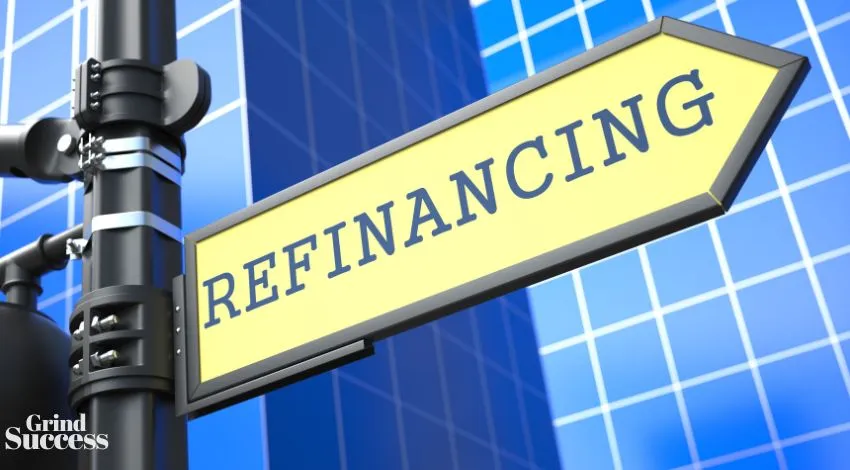Refinancing your Car – Benefits, Drawbacks, and Everything in Between
Refinancing your car can be among the most significant decisions ever.
This is because this tiny decision can get you out of severe debt burdens or send you looming into one if not handled properly.

For many people, refinancing has proven to be beneficial. However, before taking this critical decision, one should consider its associated pros and cons.
Want to know how the refinancing aspect can benefit you and what drawbacks you might encounter? Hop on below to find out.
Benefits of Refinancing Your Car
The refinancing aspect has both pros and cons side to it. However, the benefits in several aspects overdo the negative points associated with it. If you are someone who wants to know how refinancing your car might benefit you, here lays your answer.
Lowers Your Interest Rate and Extends Terms of Loan
Refinancing can save you money by lowering your interest rate or extending the terms of your loan.
For example, if you are currently paying off a loan with an interest rate above 6%, refinancing could reduce that amount to as little as 2%. You will pay less over time by reducing your interest rate, even if your monthly payment stays constant.
For example, if you have a $25,000 car loan and make monthly payments of $500 at an 8% APR (annual percentage rate), it will take 60 months (more than five years) to pay off the debt—and during that time period, you will end up paying more than $5,300 in interest!
Can Lower your Monthly Payment and Interest over Life Course
Refinancing your car will allow you to:
With a refinance, you can lower your monthly payments and save money over time by reducing how much interest you’re paying on your vehicle loan. If you are looking for refinancing a car calculator, check online websites.
You Want a New Lender
Hiring a new lender might be another positive aspect of refinancing your car. In many situations, people aren’t satisfied with their current dealers or want to move towards a better and larger operating financial institution.
Hence, if you want to change your lender, it is essential to release the applicable costs.
Cons of Refinancing your Car
While the benefits are great, there might be several drawbacks or cons that you might want to keep in mind. Refinancing is a big step, so ensuring you understand what you are getting yourself into is extremely important. Here are some cons which might not work well for you:
The Length Adds More Cost
Your in-debt amount increases with the longer time you stretch it. This is because, with increasing time, more interest becomes applicable.
However, while you will have to pay more than you have to with your current lender, the lesser monthly payment will put you at ease.
Hence, it will be your call to either extend your payment duration and add more costs or pay a higher monthly payment each month.
The Cost of Refinancing
Some financial institutions add additional expenses like closing charges and other fees to your payment list. Hence, before deciding, understand what your financing company is charging you and ask for a complete breakdown of the cost.
You Could Wind Upside Down
Refinancing to extend your car loan term would leave you going more than what your car is worth.
Hence, in between this scenario, if you decide on selling your car, it would leave you in a case of negative equity getting out of which would cost you thousands of dollars that you will have to pay to your lender.
Don’t know what negative equity is and why understanding that your cost remains less than your car’s worth is essential? We got the answer for you.
What is Negative Equity Position in Refinancing, and Why is it Important to Review?
Negative equity occurs when you owe more on your vehicle than it is worth. This can happen if you purchase a new vehicle and then decide to trade it in for a new one before the loan ends or if the value of your car goes down faster than interest rates increase.
A negative equity position isn’t necessarily bad for your finances, but it does make it harder to sell your car.
If you want to sell your car to make some extra cash, having negative equity will affect how much money you get back from the sale because buyers won’t necessarily want to buy something that doesn’t have any positive value other than being able to drive it around town and use it as transportation.
According to Lantern by SoFi, “Refinancing an auto loan could extend your loan term, meaning you owe less each month.”
The Total Cost of the Loan Will be more in the Long Run if you have to pay off a Negative Equity Position.
Suppose you are unable to pay off any negative equity. In that case, your refinancing option will likely be with a lender who requires you to maintain the same amount of negative equity position.
The lower the amount of negative equity, the higher your monthly payment will be, and vice versa.
When choosing between two different loans with varying interest rates, it is essential to look at the total cost of each loan over its lifetime. In many cases, this can make a difference between choosing one loan over another by hundreds of dollars!
Conclusion
In summary, refinancing your vehicle can be a great way to save money or pay off your loan faster. Just be sure to evaluate all the factors that come into play before making any decisions.
